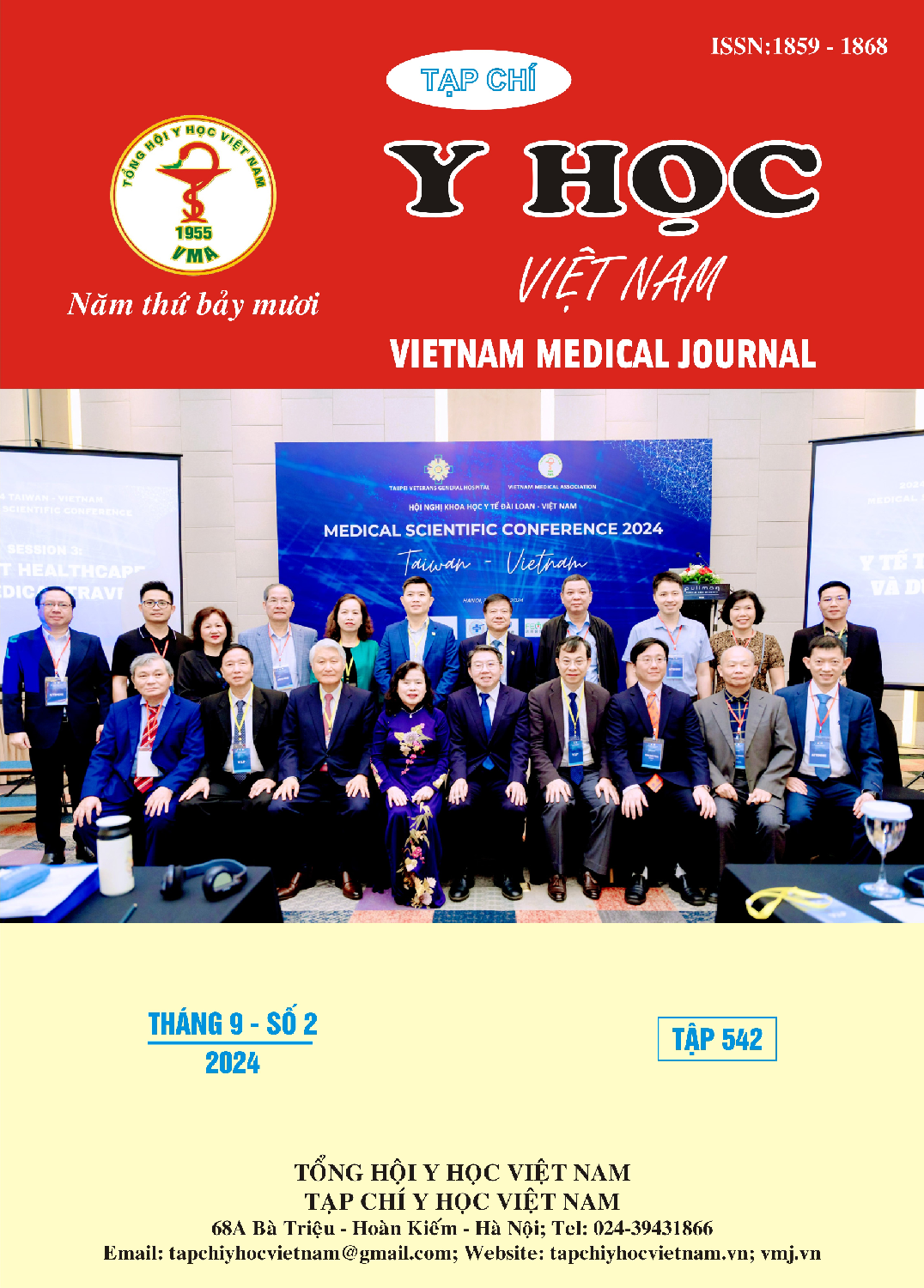EVALUATING THE VALUE OF PRENATAL BOBS IN PRENATAL DIAGNOSIS CHROMOSOMAL MICRODELETION SYNDROMES IN HANOI OBSTETRICS AND GYNECOLOGY HOSPITAL
Main Article Content
Abstract
diagnosis tests, karyotyping is still the golden standard, however recent development of other bio-molecular techniques also provided the possibility to early diagnose and detect syndromes such as Down, Patau, Edwards, or defects in sex-determination chromosome after 24-48 hours. Particularly, Prenatal BoBs technique can diagnose 9 popular chromosomal micro-deletion syndromes causing serious symptoms among children, which other techniques still have limited detecting capability. Objective: Evaluate the result of Prenatal BoBs technique in prenatal diagnosis of chromosomal micro-deletion syndromes. Subject - Methodology: Prenatal BoBs testing was applied to amniocentesis samples of 16-27 week of gestation with high risk of chromosomal abnormality in Hanoi Obstetrics and Gynecology Hospital from 05/2016 – 12/2022 to identify cases of fetal chromosomal micro-deletion/duplication syndromes. Result: Prenatal BoBs was able to identify 39 cases of fetal chromosomal micro-deletion/duplication syndromes. Among these cases include 21 cases of 22q11.2 deletion, 3 cases of 5p15 deletion, 1 case of 4p16.3 deletion, 1 case of 15q11-12 deletion, 1 case of 17p11.2 deletion, 7 cases of 22q11.2 duplication and 5 cases of others duplication. Conclusion: Prenatal BoBs is a genetic test capable of providing highly accurate results in a rather short time (48h), which able to early diagnose abnormality of 9 popular chromosomal micro-deletion syndromes, especially DiGeorge syndrome.
Article Details
Keywords
BACs - on – beads, prenatal diagnosis, micro-deletion/duplication syndromes.
References
2. Shaffer LG, Coppinger J, Morton SA, et al. The development of a rapid assay for prenatal testing of common aneuploidies and microdeletion syndromes. Prenat Diagn 2011;31:778-87
3. Grati FR, Gomes DM, Ganesamoorthy D, et al. Application of a new molecular technique for the genetic evaluation of products of conception. Prenat Diagn 2013; 33(1):32-41
4. Vialard F, Simoni G, Gomes DM, et al. Prenatal BACs-on-BeadsTM: the prospective experience of five prenatal diagnosis laboratories. Prenat Diagn 2012;32:329-35
5. Piotrowski K, Henkelman M, Zajaczek S. Will the new molecular karyotyping BACs-on-Beads technique replace the traditional cytogenetic prenatal diagnostics? Preliminary reports. Ginekol Pol 2012;83: 284-90
6. Sheath KL, Duffy L, Asquith P, et al. Bacterial artificial chromosomes (BACs)-on- BeadsTM as a diagnostic platform for the rapid aneuploidy screening of products of conception. Mol Med Rep 2013;8:650-4
7. Vialard F, Simoni G, Gomes DM et al (2012), “Prenatal BACs-on-Beads: the prospective experience of five prenatal diagnosis laboratories, ” Prenatal Diagnosis, 32 (4), pp. 329–335
8. Vialard F, Simoni G, Aboura A, De Toffol S, Molina Gomes D, Marcato L, et al (2011), “Prenatal BACs-on-Beads™: a new technology for rapid detection of aneuploidies and microdeletions in prenatal diagnosis”, Prenat Diagn, 31, pp.500–8.
9. KW Choy, YK Kwok, YKY Cheng et al (2014), “Diagnostic accuracy of the BACs-on-Beads™ assay versus karyotyping for prenatal detection of chromosomal abnormalities: a retrospective consecutive case series”, BJOG, 121(10), pp 1245-52.


